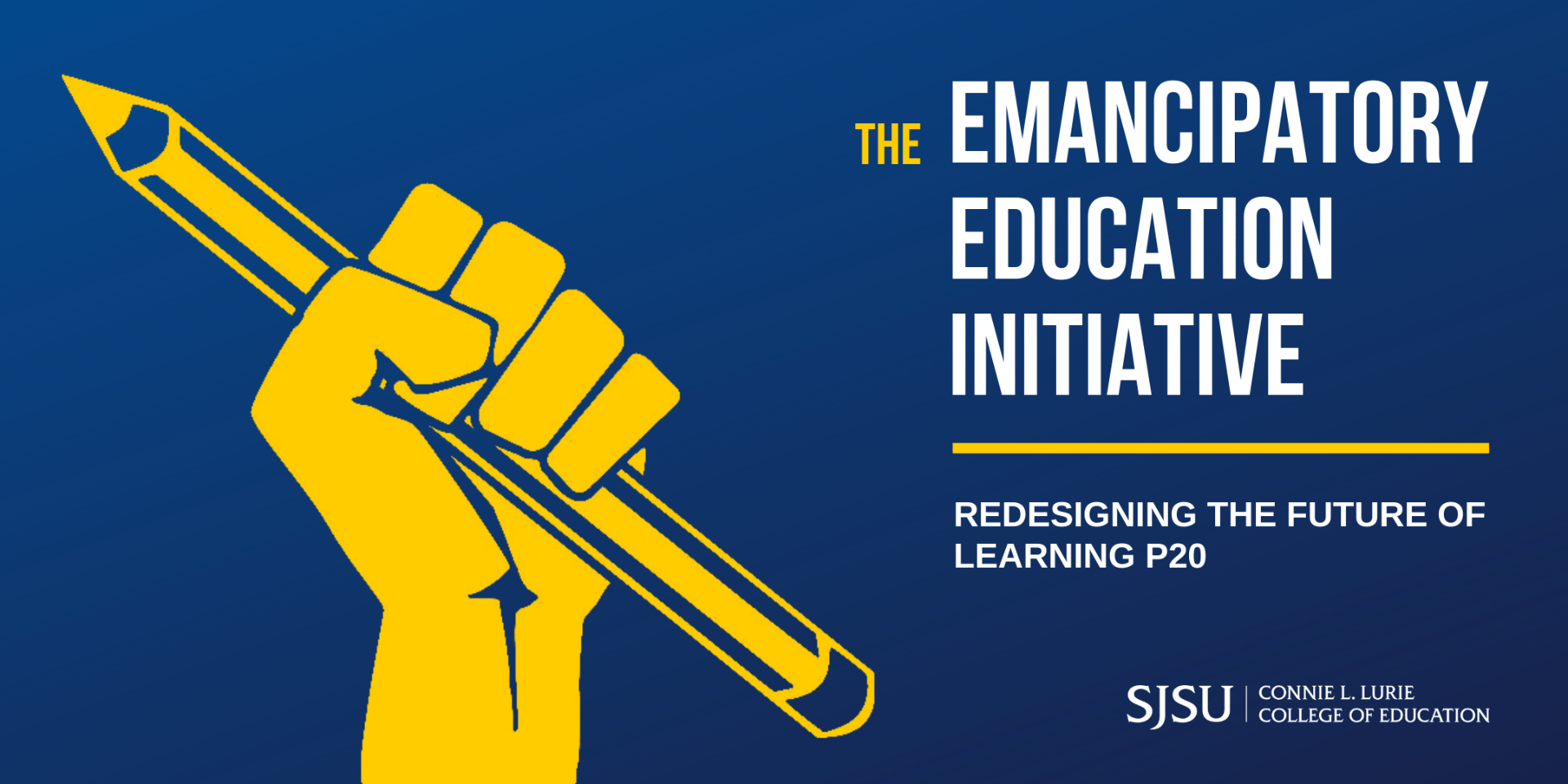
The Emancipatory Education Initiative: Redesigning the Future of Learning P20
San José State University’s Connie L. Lurie College of Education is launching the Emancipatory Education Speaker Series on Friday, Feb. 26, from 3:30 to 5 p.m. The free series invites educators to join in four online discussions with local and national leaders in education.
Emancipatory education, as defined by the college, is the critical evaluation of the systems and structures of oppression that maintain the status quo in educational institutions.
The series is a product of the Lurie College’s Emancipatory Education Initiative, which promotes community-engaged research and supports the redesign of learning from preschool through post-secondary education. This initiative reflects the college’s commitment to racial equity as outlined in its three-year strategic plan.
“As we stare down a year of COVID, many are looking forward to a time when we can go back to ‘normal,’ but normal didn’t work for too many of our children, youth, families and communities,” said Heather Lattimer, dean of the Lurie College.
“We’re asking educators whose research, advocacy and leadership spans early childhood through post-secondary education to share their vision for post-COVID education through an emancipatory lens and to identify concrete steps to enact that vision.”
In fall 2020, Lurie College students participated in Emancipatory Education Now, a student-led initiative that examined what emancipatory education looks like in today’s society and advocated for the expansion of emancipatory education research, policies and practices. The speaker series is meant to grow this work for the SJSU community and open these conversations to educators beyond San José State.
“The Emancipatory Education Speaker series contributes to an ongoing conversation within the Lurie College—how post-COVID education initiatives learn from and build with educators and scholars who have been agents of change at various levels of our schooling system,” said Rebeca Burciaga, interim chair of SJSU’s department of educational leadership, associate professor of educational leadership and Chicana and Chicano Studies, and founder of the Emancipatory School Leadership master’s program.
“Our return to schools in the context of a global pandemic, challenges to our democracy, a national racial reckoning, and growing inequalities requires a fundamental shift in the way we think about education. We cannot afford to do business as usual. This series is an invitation for educators and community members to partner with us as we look towards new beginnings.”
Confirmed speakers thus far include:
February 26
- Gloria Ladson-Billings, American pedagogical theorist
- Jonathan Rosa, associate professor of education, Stanford University
March 5
- John King Jr., former U.S. Secretary of Education; CEO, The Education Trust
- Leslie Gonzales, associate professor of educational administration, Michigan State University
March 12
- Tara Yosso, professor, UC Riverside Graduate School of Education
Latina School Leaders Panel:
- Fabiola Bagula, senior director, San Diego County Office of Education’s Equity Department, lecturer of educational leadership, SJSU
- Rebeca Burciaga, associate professor of educational leadership and Chicana and Chicano Studies, SJSU
- Melissa Martinez, associate professor of education and community leadership, Texas State University
- Sylvia Mendez-Morse, professor emeritus of educational leadership, Texas Tech University
- Ana Tavares, bilingual educator and administrator
March 19
- E. J. R. David, psychology professor, University of Alaska, Anchorage
Disability Justice Panel
- Saili Kulkarni, assistant professor of special education, SJSU
- Leroy Moore, founder of Krip-Hop
- Lisa “Tiny” Gray-Garcia, poverty scholar and revolutionary journalist
The series, co-sponsored by SJSU’s Division of Student Affairs, will be recorded and made available on the Lurie College website. For more information, please visit the Emancipatory Education Speaker Series page.
